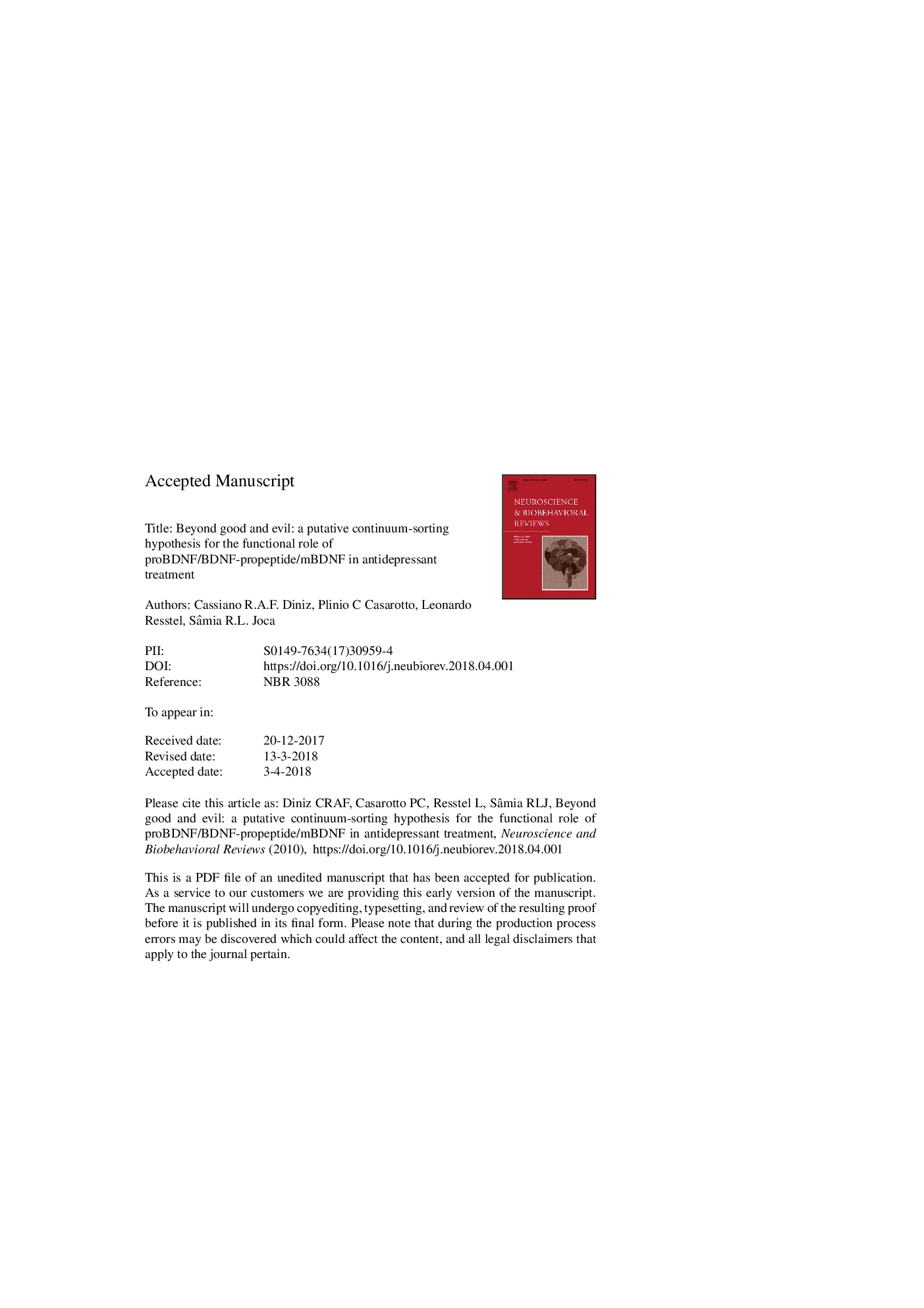| Article ID | Journal | Published Year | Pages | File Type |
|---|---|---|---|---|
| 7301720 | Neuroscience & Biobehavioral Reviews | 2018 | 43 Pages |
Abstract
Depression and posttraumatic stress disorder are assumed to be maladaptive responses to stress and antidepressants are thought to counteract such responses by increasing BDNF (brain-derived neurotrophic factor) levels. BDNF acts through TrkB (tropomyosin-related receptor kinase B) and plays a central role in neuroplasticity. In contrast, both precursor proBDNF and BDNF propeptide (another metabolic product from proBDNF cleavage) have a high affinity to p75 receptor (p75R) and usually convey apoptosis and neuronal shrinkage. Although BDNF and proBDNF/propeptide apparently act in opposite ways, neuronal turnover and remodeling might be a final common way that both act to promote more effective neuronal networking, avoiding neuronal redundancy and the misleading effects of environmental contingencies. This review aims to provide a brief overview about the BDNF functional role in antidepressant action and about p75R and TrkB signaling to introduce the “continuum-sorting hypothesis.” The resulting hypothesis suggests that both BDNF/proBDNF and BDNF/propeptide act as protagonists to fine-tune antidepressant-dependent neuroplasticity in crucial brain structures to modulate behavioral responses to stress.
Keywords
Related Topics
Life Sciences
Neuroscience
Behavioral Neuroscience
Authors
Cassiano R.A.F. Diniz, Plinio C Casarotto, Leonardo Resstel, Sâmia R.L. Joca,
